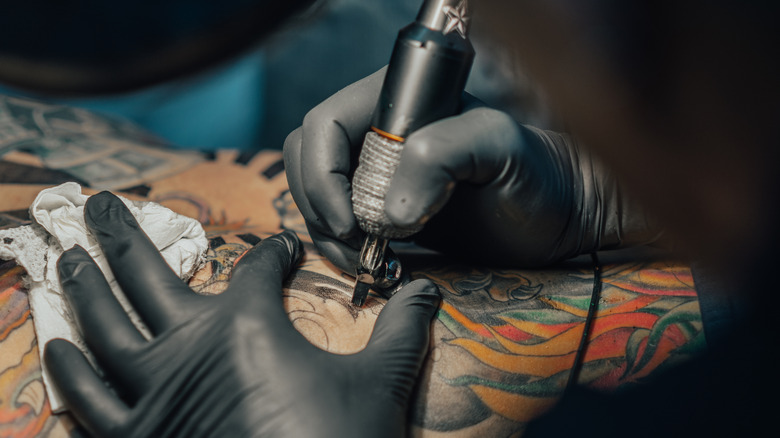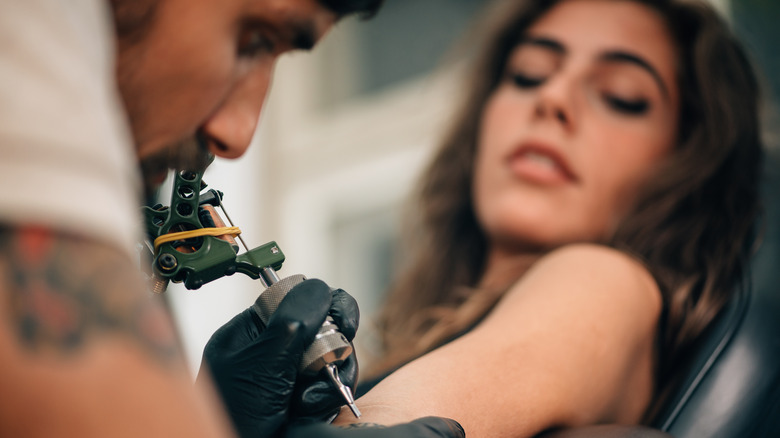Here's What Happens To Your Body When You Get A Tattoo
Tattoos can be a form of artistic expression, a memorial to a loved one, or just something that you enjoy looking at. But whether you're considering getting tattooed for the first time, or you've got several tattoos and want to go back for more, there are a few things you should know about the risks of getting inked. While some of these effects happen pretty often, there are a few more rare reactions that you need to watch out for.
One of the most common risks of getting a tattoo is having an allergic reaction (via Mayo Clinic). Tattoo needles pierce the skin repeatedly in order to inject drops of ink. Because a tattoo is introducing something foreign into your body, there is a chance that your body may have an allergic reaction to the ink when you get it. However, it's also possible that your body could react to your tattoo years after it's healed. Certain dye colors such as green, yellow, red, and blue, are more likely to cause itchy skin or raised bumps because of the chemicals they contain. If you already have allergies to certain dyes or perfumes, it's more likely that you'll be allergic to tattoo ink (via Penn Medicine).
Bad Hygiene can be bad news for tattoos
If you don't properly care for your new tattoo, the chances of a bad infections are pretty good. Keeping the tattoo clean and drying it gently after washing can keep it free of dirt, bacteria, and anything else that might cause an infection. It's important not to submerge your tattoo in any water that could have pathogens in it, like a bathtub, hot tub, pool, or lake (via Mayo Clinic).
It's equally important to go to a clean, reputable place to get a tattoo. Only get tattooed by someone who is licensed and takes proper health and safety precautions. You should be able to see your tattoo artist remove the sterilized equipment they will be using from a sealed package. They should be wearing gloves both for your safety and theirs. Taking these important steps can help you avoid bloodborne infections such as MRSA or hepatitis that can be transmitted through contaminated equipment.
In rare cases, your tattoo could cause complications when getting an MRI. Some of the ink used in tattoos can interact with the magnets and cause raised skin, swelling, and even burns during an MRI (via Penn Medicine). Tattoo ink can also cause MRI images to be less clear than they normally would be.
Making an informed decision before you get a tattoo, choosing a reputable tattoo artist and shop, and taking proper care of your new ink can greatly help you avoid harm to your body, while enjoying your new body art.

